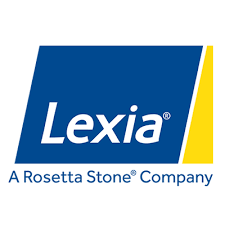Two Creative Ways to Engage English Language Learners

Educators share their strategies for teaching academically challenging (and fun) lessons that support native and non-native English speakers.
By Karyn Lewis and Yvette Ramirez
Transitions can be challenging for any student, whether that is moving from elementary to middle school, or moving to an entirely new school district. For English language learners (ELLs) the challenges are even greater. Not only do these students have to learn how to speak, read, and write a new language, they have to adjust to a new culture, all while keeping up academically with native English speakers. The challenge for these two educators, whose classrooms include native and non-native English speakers, is to make sure their lessons are academically challenging, while also teaching these lessons in a way that provides extra support for ELLs. Here’s how they do it.
Karyn Lewis: Music, Dance, and Movement
When working with toddlers during a weekly story time I held for the community at my school library, I often came across barriers such as language and cultural differences. Many of these children were shy ELLs. It was then that I discovered the magic of music to bridge the language gap. The songs I played would instantly perk these kids up and get their attention. Students are naturally motivated by music, so we couldn’t help but sing, clap, and dance along to the many books we read together.
When putting together a summer school lesson plan for my pre-K ELLs, I turned to the Cantata Learning books, which include songs and rhymes that make reading fun and easy for a wide variety of students. There are many great books about science and history concepts, including famous scientists, the water cycle, and the planets. I used the books with my pre-K and kindergarten ELLs once a week to work on building vocabulary and a love of books.
Through the songs, pictures, and movements, the students were quickly able to make connections to the content in each book, which helped them learn and remember the words at an accelerated rate. The more engaged students can be during the reading of the book and song, the better, so we would often stand up, dance, and make up motions for the songs together. This process involves several of the learning modalities (audio, visual, and kinesthetic) and therefore helps students have multiple ways to access the information later.
I particularly remember the book “Head, Shoulders, Knees, and Toes” being especially engaging for the students, and a lesson the teachers also enjoyed. I started the lesson by telling students we were going to learn a new song to help us remember the words for different parts of our body. They pointed to their head, shoulders, knees, and toes (with the help of their teacher assisting in Spanish, if needed).
As I played the song, the students stood up and followed the directions in the song to touch the different parts of their body, mirroring my movements. When the song finished, we listened to it one more time. This time, the students were singing the new words and confidently pointing to the body parts as the song played. At the end of the lesson I asked them to find many of the new parts of their body mentioned in the book, and they were able to find them and point to them easily.
This sort of activity has helped my students build academic vocabulary in an engaging and non-threatening way. The music and rhymes make learning fun for the ELL students. Students loved them so much that they often requested to play the songs again and again.
Yvette Ramirez: Project-Based Learning and Cultural Variety
I teach English as a second language (ESOL) at Hunter’s Creek Middle School in Orlando, FL, where we have 165 students in the ESOL program. These children speak 32 different languages, and are gaining confidence and language skills using STEM and project-based learning (PBL).
A common approach to teaching ESOL students is to pair a student with stronger language skills with a struggling student. PBL facilitates this kind of collaborative learning, and gives students an opportunity to dive deep into a topic and really spend time with it. They also get to practice their language skills in a variety of ways, including listening to and watching videos, reading articles, and writing their own content.
To implement PBL in my STEM lessons, I use Defined STEM, a K-12 resource that provides educators with hundreds of engaging, relevant, cross-curricular PBL tasks. Defined STEM allows students to access the lesson directions and rubrics in many different languages; all of the articles, videos, and other supporting content are in English. The format makes students feel more comfortable when engaging in a project because they read the directions in their own languages, but must use their English skills to actually complete the assignments.
Last year, my students engaged in a performance task focused on culinary art and sustainability. The goal of the project was for students to create their own farm-to-table restaurant, including deciding where to locate the restaurant geographically, what to farm, how to farm, and ultimately what the menu would be. Students used provided resources to research healthy recipes, figure out what kind of gardens they needed, and decide where in the country they needed their gardens to grow.
The project culminated in students presenting their findings through commercials and TV interviews they created to showcase their unique farm-to-table concepts. The ESOL students have influences from around the world, which shined through in their menu and food choices. While the project helped them build their English skills and gain knowledge about American culture and geography, the students were able to incorporate a bit of home, too.
Karyn Lewis is a pre-K–5 librarian at Meadow Wood Elementary in Houston, Texas.
Yvette Ramirez is the ESOL teacher at Hunter’s Creek Middle School in Orlando, FL.



